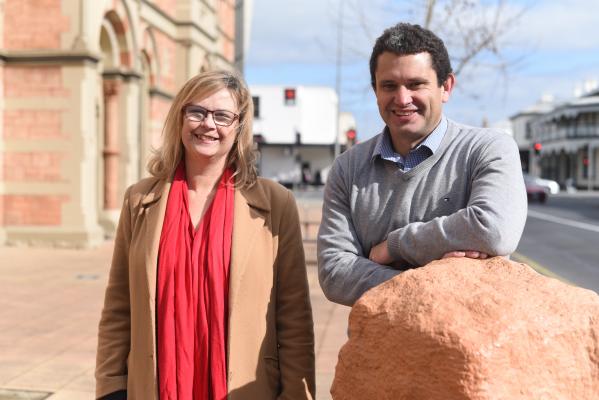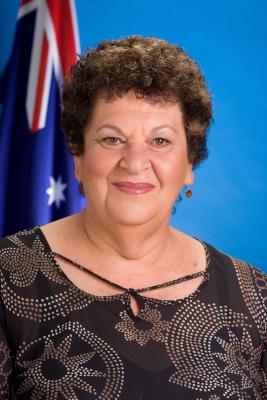
By Raquel Mustillo
LABOR heavyweight and former Limestone Coast resident Kyam Maher has emotionally remembered watching the painful death of his mother and community stalwart Viv in a passionate debate about euthanasia laws.
Mr Maher has introduced landmark legislation to legalise voluntary assisted dying in South Australia into the Legislative Council, which if passed would provide terminally ill patients a choice to access euthanasia.
The opposition frontbencher tearfully spoke about Ms Maher, who passed away of pancreatic cancer in 2017, describing her death as “far from the peaceful, dignified end of life she or any other person deserves”.
He told the chamber of her advocacy work for marginalised communities, including the Indigenous, which included running Mount Gambier’s women’s shelter, working as a social worker at Centrelink and her efforts at Pangula Mannamurna.
“If one thing summed up how she lived her life, it was making sure others were able to live their lives with dignity,” Mr Maher said.
“Viv lived her own life and with great dignity and she out to have had the right to choose to die with the same dignity.
“After many chemotherapy treatments, Viv was increasingly suffering from infections and other side effects from her cancer and her treatment.
“Much of her last couple of months were spent in significant pain under the compassionate care of nurses and medical staff.”
Mr Maher was moved to tears as he remembered his mother’s final days, in which she had made the difficult decision to stop all her treatments.
He said the decision had been made in absolute clarity in the presence of her treating specialist, but Ms Maher was advised by the doctor to think it over for the night.
“The next day she said goodbye to her eight grandsons for the last time and stopped all her treatment,” Mr Maher said.
“She literally starved and wasted away with no medication, food or water over six painful, tortuous days.
“Viv was often in half-aware states of panic as her body did what her mind had decided so long to do.
“It does not have to and should not be this way.
“It is time to let terminally ill South Australians safety and legally choose how to end their life.
“People deserve to die with the same dignity that they lived their life.”
Mr Maher’s proposal is based on the Victorian model, which provides people with incurable, advanced and progressive diseases who are expected to die within six months – or 12 months if a neurodegenerative diseases – access to the scheme.
The nine-step process requires individuals to ask their doctor for information about voluntary assisted dying before being assessed by two doctors who have completed training in assessing people for voluntary dying to see if requirements are met.
Under the proposed law, a 10-day wait period will be implemented between a request and the issuing of a permit.
An identical voluntary assisted dying bill was introduced in the state’s House of Assembly by Mr Maher’s colleague Susan Close on the same day, marking the 17th time a voluntary euthanasia bill has been debated in parliament in the last 25 years.
The most recent attempt of establishing a euthanasia scheme in 2016 resulted in a tied vote on the floor of the chamber, with Member for Mount Gambier Troy Bell voting down the bill.
Mr Bell said he had wrestled with the issues surrounding the debate for years, but pledged to support the new bill in the lower house.
The independent MP attributed his change of heart on the controversial issue to experiencing the death of a family member.
“A defining moment for me was watching my uncle slowly die of cancer,” Mr Bell said.
“A profoundly religious man, I spoke with him about euthanasia – and his other passion fox hunting – in the last days of his life.
“He was in terrible pain and kept saying to me ‘if you think living is hard, dying of cancer is much harder’.
“That experience cemented my position that for those who have a terminal illness and are approaching their end of life, they should have the right to choose how and when that occurs.”
Politicians have been granted a free vote on the issue – allowing individual MPs to vote according to their own personal conscience rather than an official party line on the issue.
Liberal Member for MacKillop Nick McBride has indicated he will support voluntary assisted dying laws, while Limestone Coast Labor parliamentarian Clare Scriven will vote against the bill in the Upper House when it is debated next year.








